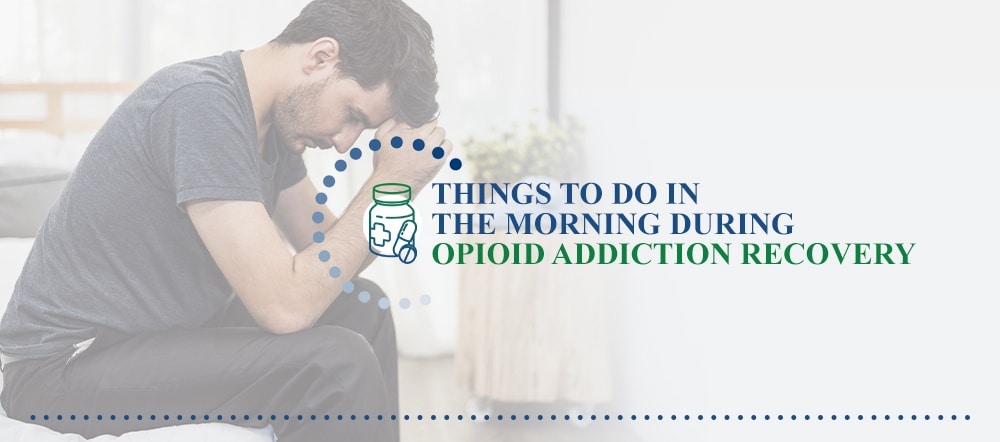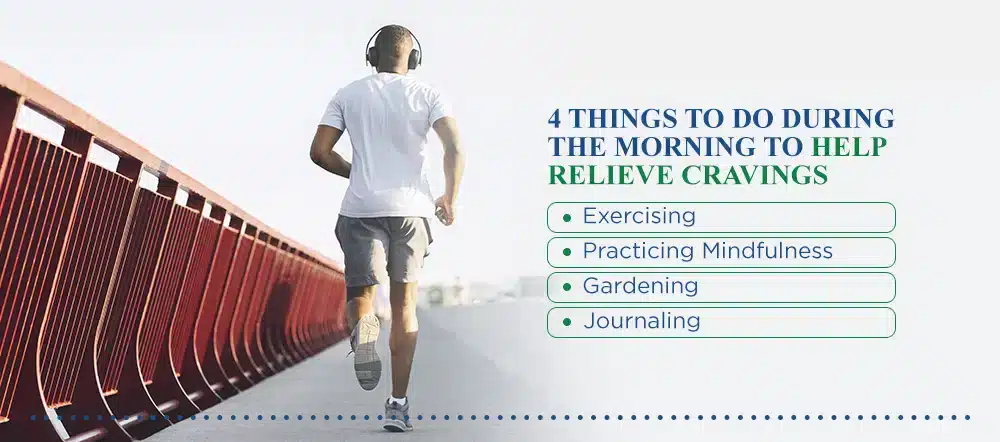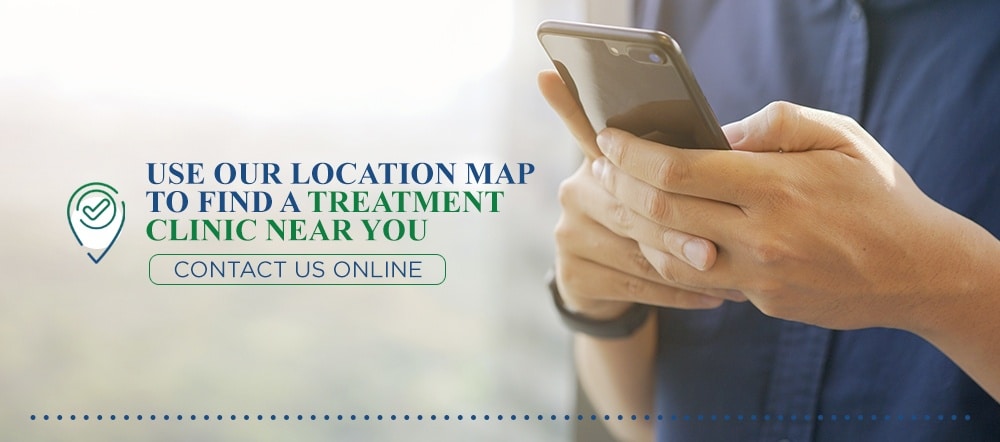Opioid addiction is a chronic disease, not a weakness. Taking that courageous first step towards recovery is a monumental achievement, and the path that follows admittedly isn’t easy. It takes work to rewire your brain to stop relying on opioids.
Throughout the first few months of sobriety, patients may experience withdrawal symptoms such as chills, shakes, nausea, vomiting, feelings of anxiousness and depression or difficulties sleeping. Getting quality sleep plays a crucial role in the opioid addiction recovery process, but it may not be easy during that initial transition period.
Although recovery can be difficult, patients are not alone in the fight. There will be obstacles, like learning how to battle opioid addiction cravings in the morning. Still, you can rely on your support system and opioid addiction treatment professionals to stay motivated and healthy.
Why Are Morning Opioid Cravings so Difficult?
In the months following the first day of sobriety, the body’s neurotransmitter levels and circadian rhythm rebalance to create a new sense of “normal.” When patients lie down to go to sleep, they may find it difficult to turn off racing thoughts. Also, if the patient’s recovery process includes medication-assisted treatment of methadone or buprenorphine, they may experience the unfortunate side effects of sleeping problems.
During active use, many patients would rely on opioids to help them sleep. Patients may experience cravings at high levels in the morning due to their lack of quality sleep, which is why treatment clinics are often full in the early hours of the day. This experience is understandably frustrating, but remember that these difficulties are a natural part of the recovery process, and the light at the end of the tunnel is within reach.
4 Things to Do During the Morning to Help Relieve Cravings
One of the best things patients can do during recovery is to establish structure throughout their daily and morning routines. Many people in early recovery feel like they have too much time on their hands, so creating and sticking to a morning routine may prove beneficial for keeping active and avoiding relapse.
Consider these morning recovery tips for opioid addictions:
1. Exercising
An overwhelming amount of research suggests that exercise reduces feelings of anxiety and depression, which are often associated with withdrawal. Exercise comes in many forms, including:
- Walking
- Jogging
- Swimming
- Cycling
- Gardening
- Dancing
- Yoga
Other evidence-based benefits of exercise include being an effective distraction from stress and cravings, increased self-efficacy and improved social interaction.
Set reasonable goals for yourself. You’re likely not going to run a marathon on your first try, but you might be able to run a lap around the track. If running a marathon is your long-term goal, make running a mile with ease your short-term goal and build up from there.
Some patients prefer scheduling early morning classes, like group cycling or a dance class. Having something scheduled decreases the chances of procrastination and takes up more hours of the day, which is a good thing for those struggling with too much time.
2. Practicing Mindfulness
In the simplest sense, mindfulness is the practice of being present in life, opening your mind to a greater awareness of the world. Our brains are shaped by our past experiences, including those throughout active addiction. Practicing acts of mindfulness helps repair and reshape the brain for greater control and awareness.
You don’t even have to get out of bed to be mindful. Once you wake up, you can either remain lying down or sit with your shoulders back and chest upright. Once you’re comfortable, begin a simple breathing exercise following these easy steps:
- Rest one hand on your chest and one on your belly, under your ribs.
- Breathe deeply into your belly through your nose, allowing your hand to rise with your belly.
- Hold for three seconds.
- Breathe out through your mouth slowly, trying your best to keep your exhale as long as your inhale, and vice versa.
- Repeat this exercise about 3 to 10 times, making each inhale and exhale last longer than the previous.
To combine the benefits of exercise and mindfulness, try incorporating yoga practices into your morning routine. Yoga reduces the impact of exaggerated stress responses, lessening the intense feelings associated with anxiety and depression. Styles vary, with some being more strenuous while others focus more on mind-body connections, so choose a practice that works for you.
3. Gardening
Some patients prefer to release their minds of cravings by changing their scenery. Whether you have a green thumb or not, consider starting a garden. You don’t need an extensive amount of land — just a small plot will do. Or, consider growing pot-friendly plants like strawberries, lavender and mint.
You can benefit from growing a garden by:
- Learning how to let go: You may relate to the feeling of not having control. Gardens offer the perfect balance of having control of your own environment and learning how to be okay when something goes wrong, like if a plant dies or a curious and hungry animal finds your produce.
- Developing a growth mindset: Every day comes with new obstacles. For people with a growth mindset, they see “failure” as a learning opportunity. Don’t be afraid of failure, like accidentally sowing your seeds wrong. Instead, accept the learning opportunities, like learning how to sow your seeds right next year, or, concerning recovery, trying a new form of counseling.
- Reducing stress levels: Honing your nurturing skills allows you to make emotional connections with the world around you, which offers benefits similar to mindfulness. Gardening is also exercise, moving your body for weeding and planting. Some gardeners even relate the movements to yoga.
Start your day by harvesting your fruits, vegetables and flowers. If you have time on your hands, spend a few hours after gardening to brainstorm ways to incorporate your fresh produce into your meals. Nutrition is a big part of the recovery process, too. Fuel your mind and body with a mood-stabilizing diet of complex carbohydrates, dietary fats, omega-3 fatty acids and adequate amino acids.
4. Journaling
When your thoughts seem like they don’t stop, find a new home for them in a journal. Keep a record of your cravings and feelings throughout the beginning of your recovery process, and if it works for you, continue journaling as you heal over time.
Some journaling methods you might use include a:
- Diary: Record yesterday’s events and how they made you feel.
- Reflection journal: A reflection journal is similar to a diary. Use it to record yesterday’s events and how you responded to experiences, both positive and negative. Reflect on ways you could have made better choices and reward yourself for things you did positively.
- Gratitude journal: Write things that you’re thankful for. It doesn’t have to be much — even just three things will suffice.
- Goal-based journal: Brainstorm some short-term and long-term goals and keep track of your progress.
Bring your journal to your treatment location and counseling sessions to share with your doctors and receive the best tools to aid your recovery process.
Talk to Your Treatment Location Professional About Your Cravings or Other Morning Activities
You aren’t battling your addiction alone. If you’re struggling with morning cravings, lean on people you can trust, like your support system and treatment professionals.
Medication is only one part of opioid addiction treatment. Talk to your treatment location professional, and they will guide you in the right direction to aid in healthily soothing your cravings. Gain the encouragement to keep up your progress through ways like one-on-one or group therapy. Remember that these intense feelings are only temporary, and soon you’ll be equipped with the skill set to conquer any cravings with confidence.
Use Our Location Map to Find a Treatment Clinic Near You
Recovery is possible. Since 1977, BAART has offered programs for opioid addiction treatment, including methadone treatment and a buprenorphine program. If you’re ready to start the courageous battle against addiction, call us at 844-341-4040 or contact us online for more information on how we can help you reach a healthier lifestyle. Or, to find a BAART treatment location near you, use our location map. We’ll be here for you when you need us.





